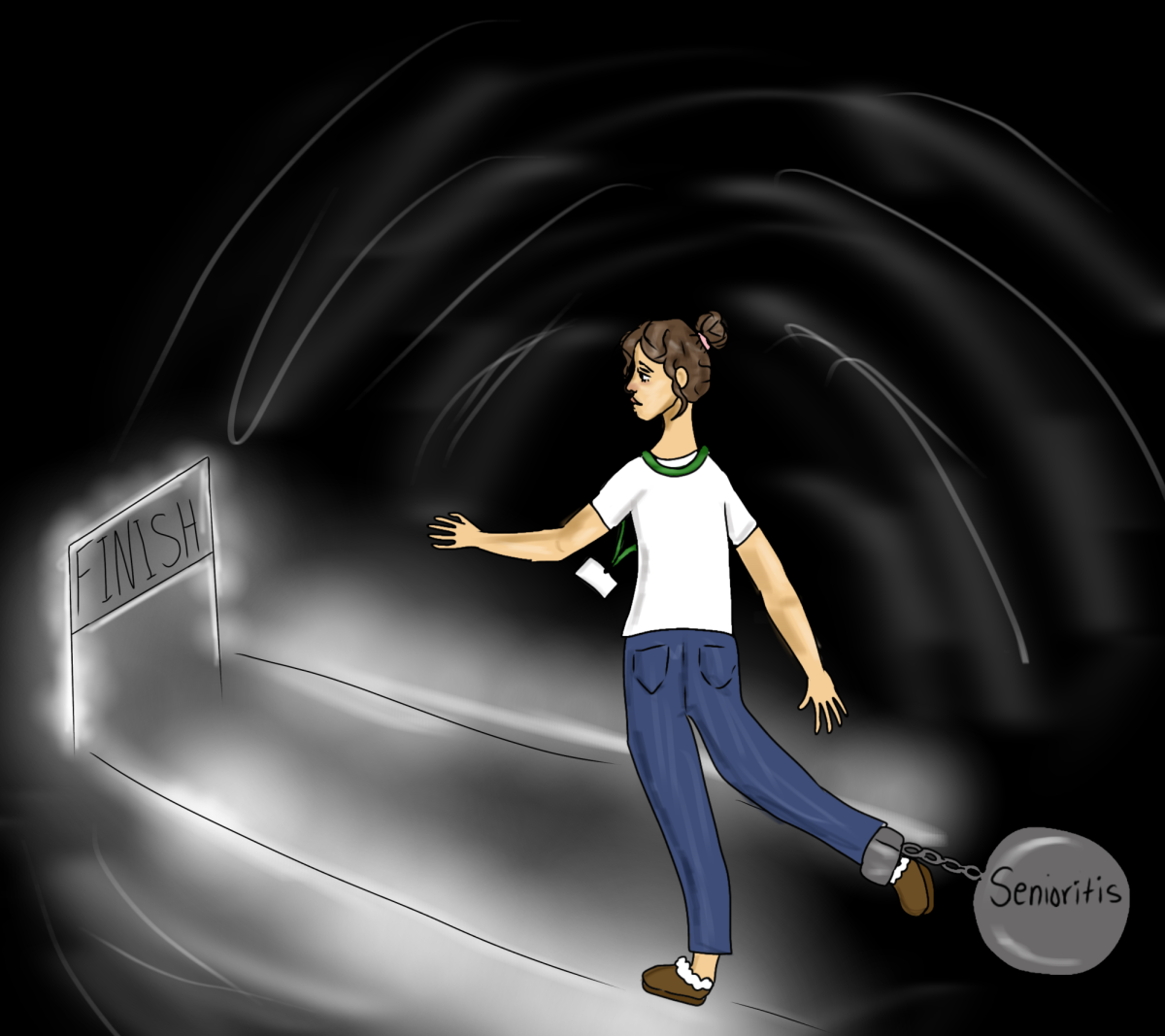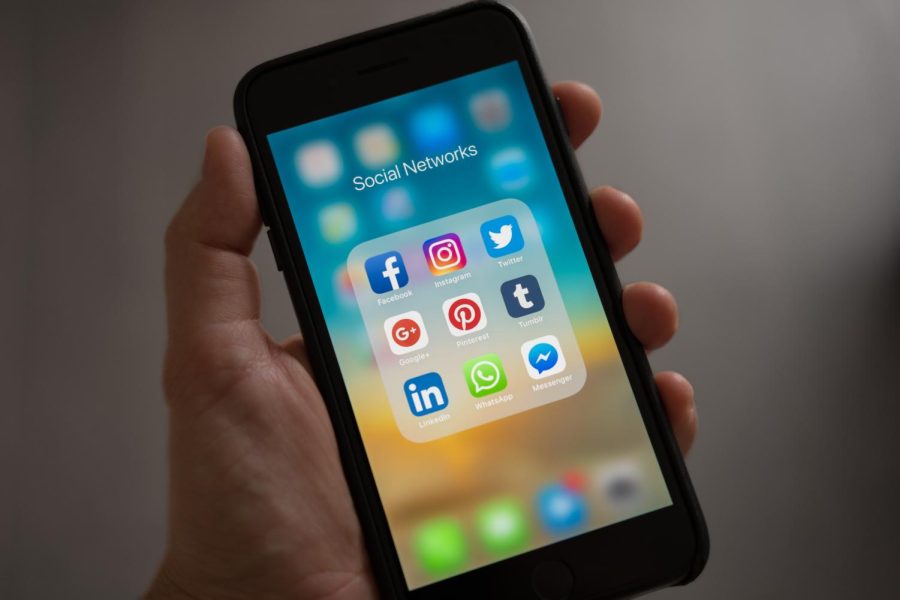How Much Do Cell Phones Really Impact Your Life?
Life in the modern world seems to revolve around phones in so many ways; it is as if technology is the sun and people are the planets being gravitated towards the sun by a strong, uncontrollable force. Many individuals do not fully recognize how addicting and compelling one’s phone can be. Today, it is considered atypical for a person to not own a phone, as its use has become a foremost aspect in life for many.
Advances in technology have had a major influence on society, but many of the effects have been found to be negative. Experts have determined that certain apps and social media platforms have become more captivating, appealing to the interest of an individual. It is extremely imperative to not allow oneself to become trapped in a world full of manipulative illusions and deceitful lies.
Today, most people in our world own a phone and have access to social media. A January 9, 2023, Upfront (scholastic.com) article entitled “Is Social Media Making Us Less Social?” reveals, “Globally, about 4.7 billion people—more than half of the world’s population—use social media. And experts expect the number of social media users to continue rising for years.” This indicates that the majority of people have access to technology and media platforms.
Phones have a considerable influence on the social and emotional well-being of an individual. Freshman Ella Carroll is aware of the influence that phones have on the interactions between people. She comments, “I think that [phones] have a huge effect on relationships. I would say the best example of this is how differently things can be interpreted over text and how people aren’t talking to one another in person.” Carroll explains how innocent conversations and statements can be misinterpreted or misleading when one is texting. Communication between people can be “distorted” over instant messages or Snapchat. Without facial expressions, it is very difficult to clarify what a person truly intended to say.
Studies show the several negative effects of phone addiction and the reason for the cause of addiction. As claimed in an article from the Very Well Health website (verywellhealth.com) on April 5, 2022, entitled “Phone Addiction: What You Need to Know,” “Cell phone addiction is similar to other types of addiction because of its effect on dopamine, a chemical in the body that causes feelings of pleasure. Cell phone use has been shown to stimulate the production and release of dopamine, which drives the need to use it more and more.” This describes how addicting a cell phone can be and the way in which people depend on this compulsive form of technology. The device provokes dopamine activity, manifesting the control that technology has on the functions within a human’s body.
According to the Addiction Center website (addictioncenter.com) article “Phone Addiction: Warning Signs and Treatment,” published on June 8, 2021, “Access to a smartphone can make life easier by making information accessible. Still, the convenience comes at a price. The devices are carefully designed to be hard to put down. Through its colors, sounds, and vibrations, the technology purposely keeps users engaged.” Apps and gizmos have been created to be more appealing to certain groups of people, as it will ultimately asset the company or industry.
Social media has a huge impact on an adolescent’s mental health and perception of the events around him. As claimed in an October 10, 2022, Upfront (scholastic.com) article titled “Can You Trust What You See on TikTok?” “TikTok is quietly becoming a political force all over the world. In the United States, plenty of people-especially teens-increasingly rely on the platform for election information, news updates, and fact-checking commentary.” The article also claims, “[TikTok] use has grown, with its American user base spending an average of 82 minutes a day on the platform, twice as long as on Instagram or Facebook, according to app analytics firm Sensor Tower.” This demonstrates the obsessive and addictive use of TikTok in the United States.
Freshman Nicholas Sferrazza stated, “I usually use Snapchat and TikTok when I go on my phone.” These two social media platforms are major influences on the people in our world, as people rely on these apps for information. Many teenagers and adults use these apps on a regular basis, absorbing false information while mindlessly scrolling through videos or posts.
In an article published on February 9, 2022, in The New York Times (nytimes.com), entitled “I’m Addicted to My Phone. How Can I Cut Back?” Dr. Anna Lembke, a Stanford University professor of behavioral science and psychiatry, says, “Use apps that enrich your life, that add value and meaning or that you need for work, not ones that take you down a rabbit hole.’” The professor reiterates the significance of disengaging from phones and characterizes the virtual world as a “rabbit hole.” She elucidates on how it is very easy to fall into a pattern of depending on a device or social media and the constant need of feeling involved or included. The professor strongly argues that individuals should not concern themselves with apps that are not constructive or advantageous, as the apps are very addicting and prevent people from accomplishing other tasks in life.
There are many cases in which phones prevent students from completing tasks such as homework or distract them from extracurriculars and other activities. Senior Alyssa Inserra shared, “I’m not going to hide the fact that my phone is the main thing that stops me from being productive most days. I do combat this by leaving my phone in another room, or, recently, I downloaded an app that forces me to stay focused on any task at hand for intervals of time.”
It is common for individuals to excessively use a device when they feel overwhelmed or stressed. Ironically, many adolescents and adults assume that multitasking enables them to be more productive. However, switching between tasks may cause a delay in the attention and concentration of a student. It is advised to leave devices in another room while taking part in a certain task or activity that requires focus. People should also consider that using two screens at once is not beneficial.
Technology has a significant impact on interactions between people in person as well. In many scenarios today, people tend to not engage in conversation, as they are preoccupied with devices. When one is distracted by his/her phone, it is easy to fail to notice facial expressions or the tone of a person’s voice. Eye contact plays a vital role in human communication. When a person is looking down at his/her phone, it interrupts the natural flow of conversation or connection between the speaker and listener.
Although technology is very addictive, there are many ways to cut back and scale down on the time spent on a device. Some ways to break a phone addiction include turning shutting off the phone or leaving it another room when doing homework or taking part in activity. Another approach, recommended by Inserra, is downloading an app that encourages an individual to remain concentrated on the task at hand. It is important to recognize the different ways of battling device addiction, as it is a considerable issue in today’s society.





































